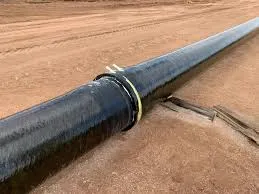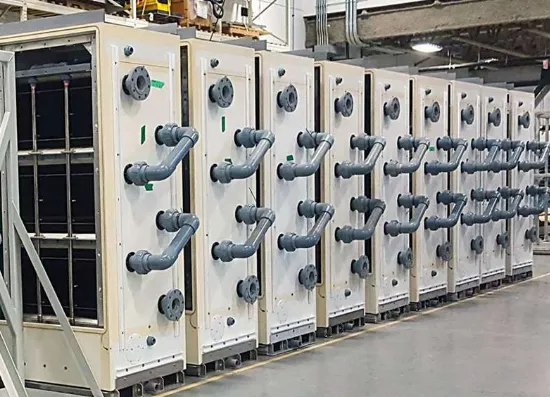
-
 Afrikaans
Afrikaans -
 Albanian
Albanian -
 Amharic
Amharic -
 Arabic
Arabic -
 Armenian
Armenian -
 Azerbaijani
Azerbaijani -
 Basque
Basque -
 Belarusian
Belarusian -
 Bengali
Bengali -
 Bosnian
Bosnian -
 Bulgarian
Bulgarian -
 Catalan
Catalan -
 Cebuano
Cebuano -
 China
China -
 China (Taiwan)
China (Taiwan) -
 Corsican
Corsican -
 Croatian
Croatian -
 Czech
Czech -
 Danish
Danish -
 Dutch
Dutch -
 English
English -
 Esperanto
Esperanto -
 Estonian
Estonian -
 Finnish
Finnish -
 French
French -
 Frisian
Frisian -
 Galician
Galician -
 Georgian
Georgian -
 German
German -
 Greek
Greek -
 Gujarati
Gujarati -
 Haitian Creole
Haitian Creole -
 hausa
hausa -
 hawaiian
hawaiian -
 Hebrew
Hebrew -
 Hindi
Hindi -
 Miao
Miao -
 Hungarian
Hungarian -
 Icelandic
Icelandic -
 igbo
igbo -
 Indonesian
Indonesian -
 irish
irish -
 Italian
Italian -
 Japanese
Japanese -
 Javanese
Javanese -
 Kannada
Kannada -
 kazakh
kazakh -
 Khmer
Khmer -
 Rwandese
Rwandese -
 Korean
Korean -
 Kurdish
Kurdish -
 Kyrgyz
Kyrgyz -
 Lao
Lao -
 Latin
Latin -
 Latvian
Latvian -
 Lithuanian
Lithuanian -
 Luxembourgish
Luxembourgish -
 Macedonian
Macedonian -
 Malgashi
Malgashi -
 Malay
Malay -
 Malayalam
Malayalam -
 Maltese
Maltese -
 Maori
Maori -
 Marathi
Marathi -
 Mongolian
Mongolian -
 Myanmar
Myanmar -
 Nepali
Nepali -
 Norwegian
Norwegian -
 Norwegian
Norwegian -
 Occitan
Occitan -
 Pashto
Pashto -
 Persian
Persian -
 Polish
Polish -
 Portuguese
Portuguese -
 Punjabi
Punjabi -
 Romanian
Romanian -
 Russian
Russian -
 Samoan
Samoan -
 Scottish Gaelic
Scottish Gaelic -
 Serbian
Serbian -
 Sesotho
Sesotho -
 Shona
Shona -
 Sindhi
Sindhi -
 Sinhala
Sinhala -
 Slovak
Slovak -
 Slovenian
Slovenian -
 Somali
Somali -
 Spanish
Spanish -
 Sundanese
Sundanese -
 Swahili
Swahili -
 Swedish
Swedish -
 Tagalog
Tagalog -
 Tajik
Tajik -
 Tamil
Tamil -
 Tatar
Tatar -
 Telugu
Telugu -
 Thai
Thai -
 Turkish
Turkish -
 Turkmen
Turkmen -
 Ukrainian
Ukrainian -
 Urdu
Urdu -
 Uighur
Uighur -
 Uzbek
Uzbek -
 Vietnamese
Vietnamese -
 Welsh
Welsh -
 Bantu
Bantu -
 Yiddish
Yiddish -
 Yoruba
Yoruba -
 Zulu
Zulu
Mar . 05, 2025 02:28
Back to list
frp car
Fiberglass Reinforced Plastic (FRP) cars are revolutionizing the automotive industry by offering a unique blend of durability, innovation, and efficiency. With their unique properties, FRP cars have carved out a niche, offering significant advantages over traditional materials, and they continue to gain recognition among automotive manufacturers and consumers alike.
From an expertise perspective, FRP technology continues to evolve with ongoing research and development. New methods of production are constantly being explored to further enhance the strength, flexibility, and sustainability of the material. Experts in material science are continuously working to develop variations of FRP that cater to specific automotive needs, from ultra-light sports cars to robust off-road vehicles. In terms of authority, some of the biggest names in the automotive industry have recognized the potential of FRP materials. Companies like BMW, and Chevrolet, have integrated FRP components into some of their models, underscoring the material's reliability and effectiveness. These integrations serve as endorsements of FRP's viability as a primary material for modern vehicles. When it comes to trustworthiness, consumers can look into the track record of FRP materials used in other industries, such as boating, aerospace, and construction, where durability and performance are equally essential. The positive performance of FRP in these demanding fields offers a strong case for its credibility and applicability to the automotive world. Additionally, the environmental benefits of FRP cannot be overlooked. As producers and consumers alike seek to reduce their environmental impact, FRP offers a greener alternative. The production process of FRP typically requires less energy than metals and results in fewer emissions. Furthermore, the potential for recycling FRP materials is improving, with advances in technology making it increasingly possible to recycle used FRP components effectively. In summary, FRP cars represent a substantial advancement in vehicle production technology. Their lightweight nature leads to enhanced fuel efficiency, their durability reduces long-term costs, and their versatility in design offers unprecedented opportunities for innovation. As experts continue to refine production techniques and develop new applications, FRP will likely play an increasingly pivotal role in the future of automotive manufacturing, offering a reliable, sustainable, and efficient way forward for the industry. Whether you're an automotive enthusiast, a potential car buyer, or a manufacturer, it's clear that FRP cars are an exciting development worth watching.


From an expertise perspective, FRP technology continues to evolve with ongoing research and development. New methods of production are constantly being explored to further enhance the strength, flexibility, and sustainability of the material. Experts in material science are continuously working to develop variations of FRP that cater to specific automotive needs, from ultra-light sports cars to robust off-road vehicles. In terms of authority, some of the biggest names in the automotive industry have recognized the potential of FRP materials. Companies like BMW, and Chevrolet, have integrated FRP components into some of their models, underscoring the material's reliability and effectiveness. These integrations serve as endorsements of FRP's viability as a primary material for modern vehicles. When it comes to trustworthiness, consumers can look into the track record of FRP materials used in other industries, such as boating, aerospace, and construction, where durability and performance are equally essential. The positive performance of FRP in these demanding fields offers a strong case for its credibility and applicability to the automotive world. Additionally, the environmental benefits of FRP cannot be overlooked. As producers and consumers alike seek to reduce their environmental impact, FRP offers a greener alternative. The production process of FRP typically requires less energy than metals and results in fewer emissions. Furthermore, the potential for recycling FRP materials is improving, with advances in technology making it increasingly possible to recycle used FRP components effectively. In summary, FRP cars represent a substantial advancement in vehicle production technology. Their lightweight nature leads to enhanced fuel efficiency, their durability reduces long-term costs, and their versatility in design offers unprecedented opportunities for innovation. As experts continue to refine production techniques and develop new applications, FRP will likely play an increasingly pivotal role in the future of automotive manufacturing, offering a reliable, sustainable, and efficient way forward for the industry. Whether you're an automotive enthusiast, a potential car buyer, or a manufacturer, it's clear that FRP cars are an exciting development worth watching.
Next:
Related Products
Latest news
-
Fiberglass 90 Degree Elbow for Custom Tanks & High Pressure Pipes Durable and Corrosion ResistantNewsJun.24,2025
-
Exploring the Benefits of Top Hammer Drifter Rods for Enhanced Drilling PerformanceNewsJun.10,2025
-
High-Precision Fiberglass Winding Machine for GRP/FRP Pipe Production – Reliable & Efficient SolutionsNewsJun.10,2025
-
FRP Pipes & Fittings for Shipbuilding - Corrosion-Resistant & LightweightNewsJun.09,2025
-
Premium FRP Flooring Solutions Durable & Slip-ResistantNewsJun.09,2025
-
Premium Fiberglass Rectangular Tanks Durable & Lightweight SolutionNewsJun.09,2025









